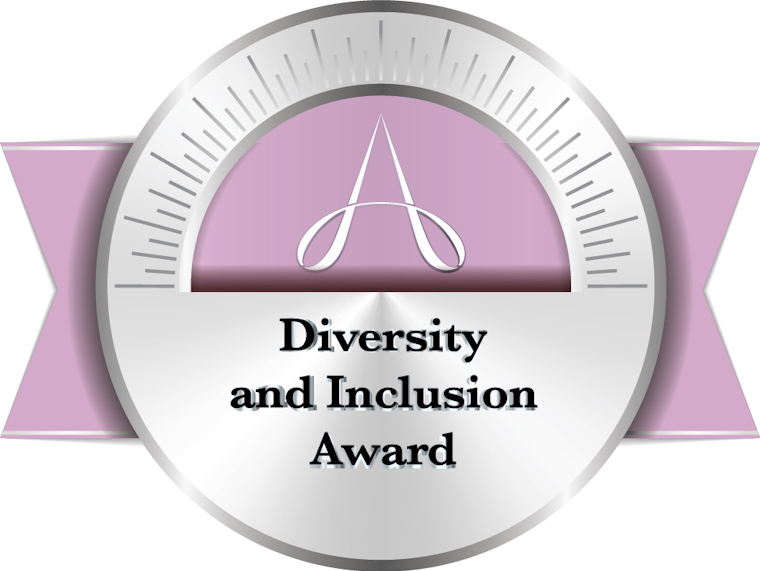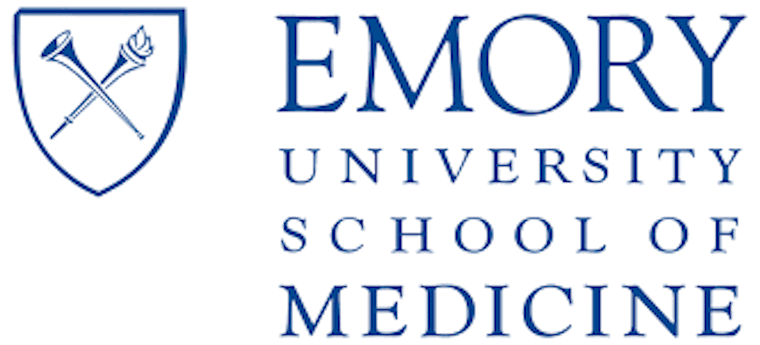Honoring Excellence: Emory University School of Medicine, Emergency Medicine Receives 2021 ACGME Diversity and Inclusion Award
Emory University School of Medicine's emergency medicine residency program is one of two inaugural recipients of the ACGME’s Diversity and Inclusion Award. Program Director Melissa White, MD, MPH answered the ACGME’s questions about the outstanding measures the program has taken to foster diversity, equity, and inclusion. The program will be honored at the ACGME Annual Educational Conference, taking place virtually February 24-26.
ACGME: Tell us a little bit about your Sponsoring Institution and program.
White: Emory University School of Medicine, situated in Atlanta, Georgia—the heart of the civil rights movement— is committed to delivering the highest quality of care to a broad community in part by embracing a wide variety of ethnic, cultural, and experiential backgrounds of its physicians/learners. In accordance with School of Medicine diversity policy, “The Emory University School of Medicine views diversity as encompassing race, ethnicity, gender, religion, socioeconomic status, sexual orientation, disability, and other aspects of life experience. These attributes enhance our scholarly, learning, living, and health care environments. They also enhance our ability to deliver equitable, compassionate, cross-cultural health care, improve community health, and lead efforts to eliminate health inequalities and improve health outcomes in disadvantaged and vulnerable populations. We must train, recruit, and employ a diverse group of faculty, staff, students, and trainees, including members of communities underrepresented in the medical and scientific workforce who reflect and understand the multicultural and international communities that Emory serves. A climate of inclusiveness is essential to achievement of diversity. We affirm diversity and inclusiveness to be fundamental values that benefit our classrooms, workplaces, and community.” In alignment with that policy, Emory School of Medicine actively recruits learners and faculty and staff members from underrepresented in medicine groups, to reflect the community we serve and care for.
The Emory emergency medicine residency, in partnership with our Sponsoring Institution, continues to engage in opportunities that remain focused on diversity, equity, and inclusion as part of our core mission, vision, and values. Promoting diversity, equity, and inclusion was a defining goal of our founding chair of the emergency medicine department, Dr. Arthur Kellermann. Since 1996 and during his tenure as chair, Dr. Kellermann intentionally recruited outstanding underrepresented physicians in medicine (URiM) and female faculty members including Drs. Sheryl Heron, Tammie Quest, Kate Heilpern, Arthur Yancey, and Leon Haley, all of whom are recognized as leading experts in emergency medicine. Today, our residency goals align with our institution and department, and the residency’s legacy of thoughtful recruitment of diverse applicants who are intellectually driven remains steadfast. The residency program’s vision to ensure diversity, equity, inclusion, and community engagement remains ingrained as part of our program’s culture.
ACGME: Why is your institution so dedicated to the concepts of diversity, equity, and inclusion?
White: The Emory emergency medicine program benefits from a broad clinical footprint with clinical locations throughout metropolitan Atlanta. The heart and soul of the program however is Grady Memorial Hospital, the public safety-net hospital for the region. The faculty and learners are recruited based on a shared mission of public service and care for a vulnerable, inner-city population. Our dedication is included in the emergency medicine department’s and program’s mission statements, which include recognition of the need to ethically engage marginalized communities, to recruit and retain physicians representing all types of diversity, and the value that this brings to our vulnerable patients.
ACGME: What work/initiative are you specifically being recognized for?
White: For more than two decades, Emory Emergency Medicine has been on a steady and consistent program of embracing diversity, equity, and inclusion, and has established a record of developing URiM learners to meet their leadership potential. It is a tremendous honor for our program to be recognized as a leader in diversity, equity, inclusion, and engagement of its recruited residents through this sustained period of time which speaks to the longevity and commitment to this process.
ACGME: Please explain what that work/initiative looks like.
White: Our passion to promote diversity, equity and inclusion is a product of the vision founded by our leaders 20 years ago within the department. The residency program demonstrates that a culture change must be embraced by its leaders to see the outcome noted of a sustained diverse residency program. A key driver of our success is in the intentional mentorship of URiM and women in medicine on local, regional, national. and international platforms. This has led to the creation of pipeline programs in medicine in middle and high school students within the Department and in partnership with Morehouse Medicine including the Reach One/Each One program, collaboration with our colleagues from Morehouse in our residency program recruitment efforts, development of innovative committees that serve our diverse population and learners, implementation of educational modules, and continuous and consistent support of our socially active residents and staff in the communities we serve.
Our DIO [designated institutional official] perhaps says it best: “Emory EM has been unafraid to challenge leadership, faculty, and trainees to reflect and grow, unafraid to not only discuss but address bias within its walls, and unafraid to apologize for its missteps. In doing so, the Emory EM Residency Program has not only made Emory a better place, but also has had a tremendous impact on the City of Atlanta, the State of Georgia, and all of academic medicine.”
ACGME: How has this work/initiative helped make your institution more diverse and/or inclusive?
White: Establishing a critical mass of successful URiM faculty, residents, and graduates not only proves the receptiveness of the program to future URiM learners but makes each of us a better person. By proximity to professionals of different orientations, ethnicities, religions, we learn better to respect all people and learn the myths our biases are based on. Leaders in Emory emergency medicine have used the foundational knowledge of diversity, equity, and inclusion grounded from the residency to their current systems-wide leadership positions at Emory. Their leadership and voice at the table include Dr. Shayne, who now serves as an associate DIO and assistant dean; Dr. Heron who serves as an associate dean for community engagement, equity and inclusion; Dr. Quest who serves as chief of palliative care; and Dr. Nicole Franks, a graduate of Spelman [a historically Black liberal arts college], Morehouse School of Medicine, and our emergency medicine residency, serves as chief quality officer at Emory University Hospital Midtown.
ACGME: How could others use your work/initiative as a model to become more diverse and inclusive? What advice do you give to GME leaders who are looking to do just that, but aren’t sure how to start?
White: Emory faculty members have published several papers and groundbreaking textbooks on our efforts and lessons learned in the efforts to embrace diversity, equity, and inclusion. The basis upon which to start is open acknowledgement of shortcomings, a willingness to publicly discuss the issues and celebrating the advances, accomplishments and achievements. Another key driver is collaboration within and across medicine and partnering with organizations such as the Student National Medical Association (SNMA) and the National Medical Association.
ACGME: What does it mean to you and to the institution to receive this award, especially being the first?
White: While we are proud of our progress towards diversity, equity, and inclusion in our program, we remain humble in the face of continued challenges and embrace the needs of our communities, country, and world we serve. We are grateful to our peers who helped identify us for this award, as that is the most rewarding of all recognitions for a residency program to receive particularly during this time of profound social unrest and clear need to address racism as we march towards social justice. We are energized to continue to broaden our understanding of marginalized populations among medical professionals and grow and learn together in our medical community.
ACGME: Is there anything you would like to say that we haven’t already asked about?
White: We are grateful that the ACGME has established this recognition as a platform not only for our successes in diversity, equity, and inclusion, but as a basis to continue a much-needed national discussion on race, social justice, and community engagement. We didn’t touch on the link between this level of recognition and physician wellness. Acknowledging URiM who have toiled and pushed to feel a sense of belonging is real. Our ability to contribute to the wellness of our URiM community, and dare I say all our community, in the domains of diversity, equity, and inclusion makes us all better.




